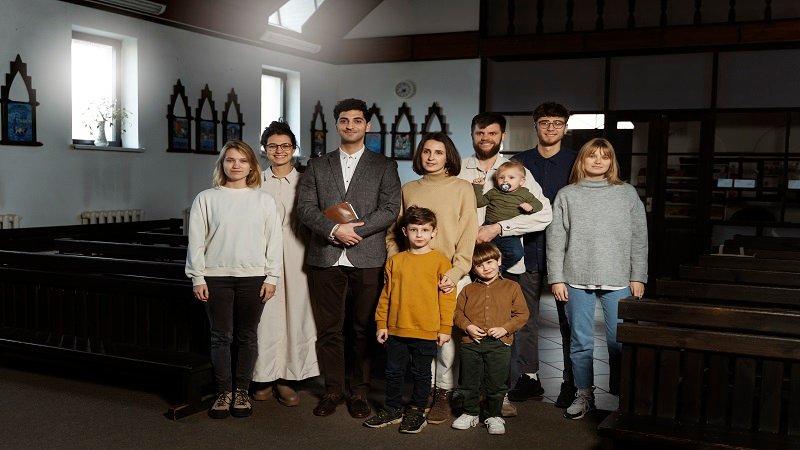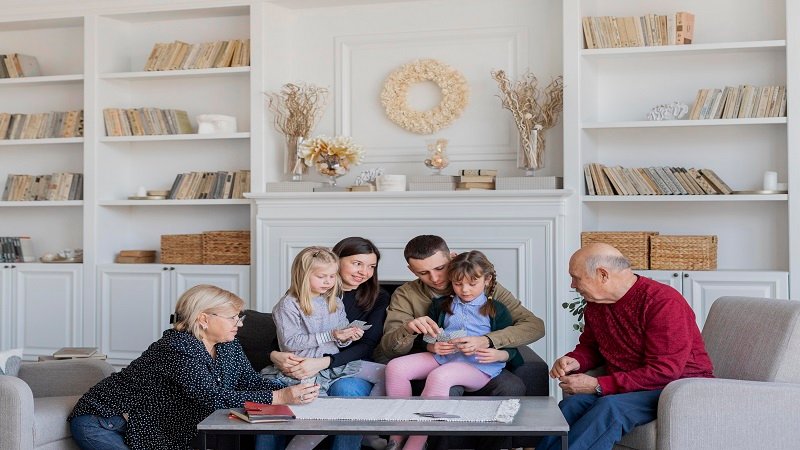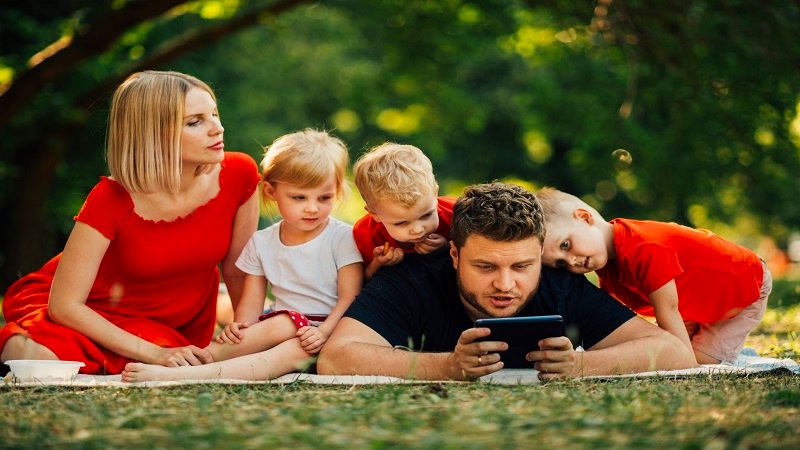Families have always been at the center of human society, shaping cultures, values, and traditions across the world. In modern times, families are no longer defined in one single way. They come in different forms, each unique but united by bonds of love, care, and belonging. From traditional households to blended families and even chosen families, the meaning of togetherness has evolved over time.
In this article, we will explore the essence of family life, its roles in society, and the importance of building strong connections. Along the way, we will reflect on modern family challenges and highlight how unity and resilience keep families strong. A special example often used to describe togetherness and shared identity is captured by the idea of Whatutalkingboutwillistyle The Family, a phrase that symbolizes a sense of closeness, fun, and collective strength.
The Meaning of Family
The concept of family has always gone beyond biology. While many people traditionally think of family as parents and children living together, the definition has expanded to include extended relatives, stepfamilies, and chosen families formed by friends or communities.
At its heart, family represents:
-
Support: Providing comfort in difficult times.
-
Identity: Passing down traditions, culture, and values.
-
Growth: Helping individuals learn responsibility, empathy, and communication.
-
Belonging: Offering a place where individuals are accepted for who they are.
These roles are consistent across cultures, though the structure of family life may differ.
Traditional Families and Their Influence
Traditional families often consisting of two parents and their children have long been the foundation of societies. In such households, parents divide responsibilities, nurture their children, and create a stable environment.
Historically, traditional families played important roles in:
-
Education at Home: Teaching moral values before formal schooling.
-
Economic Contribution: Working together in farms, shops, or businesses.
-
Cultural Preservation: Passing on customs, religion, and language.
Even today, traditional families remain significant, though they are now one of many family models.
Modern Families: Diversity in Structure

The modern world has given rise to diverse family structures. Divorce, remarriage, and cultural shifts have created blended families where step-siblings and half-siblings live together. Similarly, single-parent households have grown more common due to lifestyle choices or circumstances.
Another important development is the rise of chosen families. These are groups of friends or individuals who create strong family-like bonds without blood ties. Chosen families highlight the idea that love and loyalty, rather than just genetics, make a family meaningful.
This diversity reflects society’s changing values, emphasizing acceptance and adaptability.
What Holds Families Together?
Whether traditional or modern, all families share one goal: unity. But what exactly keeps them strong?
-
Communication: Open dialogue prevents misunderstandings and builds trust.
-
Shared Values: Families that agree on key principles, such as respect or kindness, create harmony.
-
Time Together: Regular family meals, traditions, or celebrations strengthen bonds.
-
Resilience: Facing challenges together teaches members how to adapt and grow.
The essence of togetherness can be seen in how families balance individuality with collective identity. This spirit is often described by the playful yet meaningful phrase Whatutalkingboutwillistyle The Family, which represents the joy and unity that define true belonging.
Generational Roles in the Family
Families are shaped by different generations living together and learning from one another. Each member plays a role:
-
Parents: Provide guidance, protection, and discipline.
-
Children: Bring joy, curiosity, and a sense of renewal.
-
Grandparents: Act as keepers of wisdom, traditions, and history.
This generational exchange ensures continuity. Stories, recipes, and life lessons passed down through time create a thread that binds family members together, connecting the past with the present.
Challenges Modern Families Face
Despite their importance, families face many struggles in the modern era. Some of the most common include:
-
Work-Life Balance: Parents juggling careers and household responsibilities.
-
Technology Distraction: Screens replacing face-to-face conversations.
-
Financial Stress: Rising costs of living straining family stability.
-
Cultural Changes: Traditional values sometimes clashing with modern ideals.
These challenges can create conflicts, but they also provide opportunities for families to adapt, strengthen communication, and redefine priorities.
The Role of Culture and Traditions
Culture plays a central role in shaping families. Traditions such as holiday gatherings, religious ceremonies, and storytelling reinforce belonging. Even simple habits like eating dinner together create shared memories.
For example, in many Asian cultures, respect for elders is deeply embedded in family life. In Western cultures, independence is often valued, encouraging children to develop self-reliance early. Despite differences, the goal remains the same: building strong connections.
The playful yet meaningful idea of Whatutalkingboutwillistyle The Family can be seen here it’s not about following a rigid rule but about celebrating the unique style of each family while staying connected through love.
The Psychological Impact of Family Support

Research has shown that family support significantly impacts mental health. Children raised in supportive environments are more likely to develop confidence and emotional stability. Adults who maintain strong family ties report lower stress levels and greater life satisfaction.
Emotional support within a family offers:
-
Safety: Knowing someone has your back.
-
Encouragement: Building self-esteem through positive reinforcement.
-
Resilience: Helping members recover from setbacks.
The absence of such support can lead to isolation, anxiety, and even long-term struggles.
Lessons Families Teach Us
Families serve as our first schools, teaching lessons that shape who we become. Among the most important lessons are:
-
Empathy: Understanding the feelings of others.
-
Responsibility: Taking care of shared duties.
-
Conflict Resolution: Learning how to compromise and forgive.
-
Unconditional Love: Accepting one another despite flaws.
These lessons influence how individuals interact in broader society.
The Future of Families
Looking ahead, families will continue to adapt to societal and technological changes. Virtual communication, remote work, and global migration already shape how families stay connected.
Despite these changes, the essence of family love, support, and belonging remains timeless. Whether in small apartments, large households, or even across continents, the family unit will always serve as a cornerstone of human life.
The phrase Whatutalkingboutwillistyle The Family reflects this evolution. It reminds us that family life does not follow one pattern but embraces many styles, each unique yet united by love.
Balancing Traditions with Modern Needs
The idea of lifestyle whatutalkingboutwillistyle is about how families live in today’s time while still keeping their traditions alive. Every family has its own way of living. Some focus more on work, some on school and education, and others spend more time enjoying activities together. This lifestyle is not about strict rules but about love, care, and support that makes family life meaningful.
Generational Harmony in Family Life

In many homes, lifestyle whatutalkingboutwillistyle shows how different generations live together. Parents guide and protect, children bring energy and joy, while grandparents share wisdom and stories from the past. When all generations respect and support each other, the family becomes a safe and happy place for everyone.
Flexibility in Modern Family Choices
Today, families can choose different ways of living. Some prefer to keep traditions, while others give more importance to independence and freedom. Lifestyle whatutalkingboutwillistyle means that whatever choices a family makes, the most important thing is love, unity, and the bond that keeps them connected.
Conclusion
Family is more than just a group of people living under the same roof; it is a system of relationships that shape our identity and guide us throughout life. From traditional households to modern and chosen families, the essence of togetherness lies in communication, resilience, and shared love.
As society evolves, so does the definition of family, but its importance remains unchanged. Families provide the foundation for personal growth, cultural continuity, and emotional support. They are where life’s greatest lessons are taught and where we find our truest sense of belonging.
